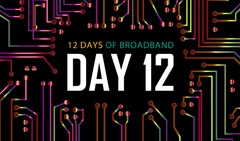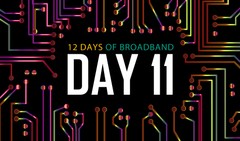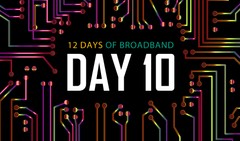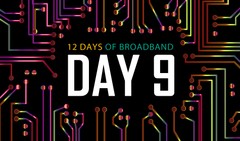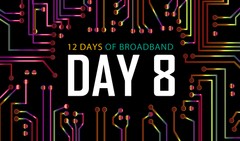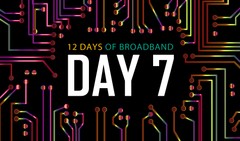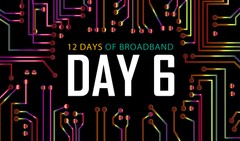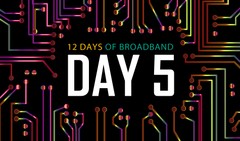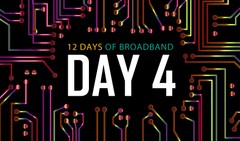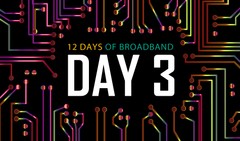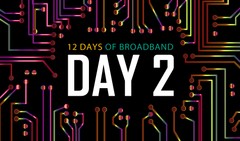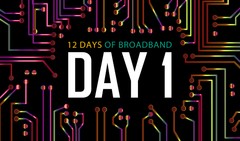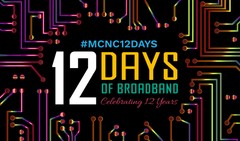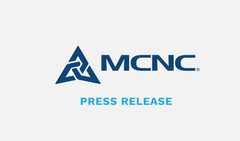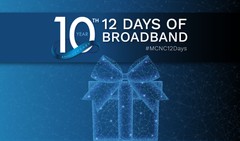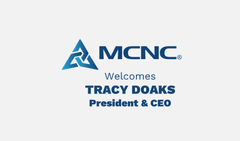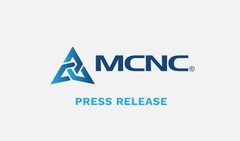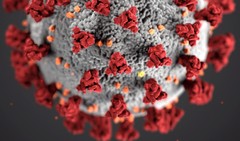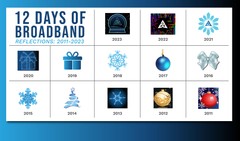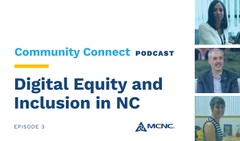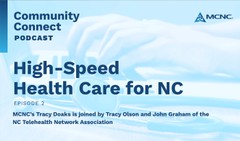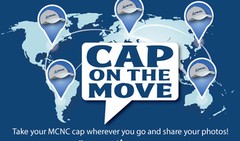Day 9: NCTNA and MCNC connecting for better health in North Carolina

Expanding broadband will lead to better health outcomes in North Carolina. Those with fast, reliable broadband will thrive while those without it will struggle. A lack of high-speed connectivity, therefore, impedes the delivery of high-quality health care and amplifies the isolation between patient and caregiver.
The partnership between MCNC and the North Carolina Telehealth Network Association (NCTNA) has been a significant journey of innovation, connectivity and empowerment for the state. As we move forward into the future there are more opportunities than ever before to further transform health and care by ensuring vital medical services are accessible for every community we serve.
Revolutionizing Delivery
NCTNA works with MCNC to provide broadband to public health clinics and non-profit hospitals throughout the state. Throughout our partnership over the years, we have witnessed many advancements in telehealth technology. From patient monitoring to virtual consultations these innovations have played a vital role in extending medical services and delivery to even the most remote areas of North Carolina. Now patients residing in these regions have access to specialized medical expertise; breaking down barriers of distance and time that often hinder prompt medical interventions. NCTNA Chief Executive Officer Tracy Olson explains that modern health care is fundamentally dependent on broadband for its internal operations, information sharing among health care providers, and the practice of telehealth. “From its inception, the NCTNA has partnered with MCNC to provide the best broadband possible for rural health care providers in North Carolina,” she said. “Progress has been made, but a real digital divide continues to exist, in part because significant regions of North Carolina remain without the broadband infrastructure they need.”
NCTNA’s Role
NCTNA, as the health care arm of MCNC, works to advocate for and support providers through our N.C. Healthcare Broadband Coalition. This coalition has engaged in several projects over the last year, all with the goal of ensuring broadband resources in North Carolina go to the underserved and unserved — those who need it most. An excellent example of this is at the Martin Tyrell Washington District Health Department. With their improved connectivity, they were able to implement telepsych for patients and increase their community program offerings due to improved speeds and bandwidth. Additionally, NCTNA’s Community Discount Guarantee (CDG) Program furthers the mission to serve the underserved. NCTNA members enjoy up to 65 percent discounts on their broadband connectivity services byway of funds NCTNA secures on their behalf from the Healthcare Connect Fund (HCF). In the past, when the HCF program exceeded the cap on discounts, members of NCTNA were left with long delays for funding approval and pro-rated discounts. This means they covered the full cost of high-quality broadband up front – without the HCF discounts. While larger hospital systems can rely on reimbursements when delays occur, these situations often have great impact on smaller health care providers. Thus, the CDG Program was created.
New Opportunities for Rural Communities
According to the Association of American Medical Colleges, rural patients face a unique combination of factors that makes treating them more complex. Poverty, lack of insurance, remote locations, and the lack of local doctors hit rural communities hard. Between 2013 and 2020, some 100 rural hospitals closed, forcing patients to travel more than 20 miles to the nearest hospital. This means critical screenings are skipped, appointments are cancelled when a ride falls through, and emergency treatment arrives too late. Telehealth emerges as a lifeline in regions where health care facilities are scarce. Our collaborative efforts have improved access to professionals and promoted preventive care methods through digital educational initiatives. Empowering communities to participate in their own health care journeys has been an outstanding accomplishment, with healthier populations rippling from the mountains to the coast of North Carolina.
Achieving Health Care Equality
One factor that runs through all these achievements is the availability of broadband connectivity. Imagine a patient, living miles away from the nearest medical facility, unable to access telehealth consultations due to slow or non-existent internet connections. Consider the frustration faced by a small-town doctor in transmitting critical patient data to a colleague for review without a stable and/or secure online platform. Think of patients relying on remote monitoring technologies to provide up-to-the-minute data, unable to inform their doctors because their broadband is unreliable. These scenarios are real and will only continue to deepen the divide as reliance on connected technologies increases. With broadband at the core, telehealth consultations will become a more stable and consistent reality, enabling patients to connect with medical professionals without arduous journeys. Electronic health records will be shared instantly, leading to better-informed diagnoses and streamlined treatment plans. For health care providers, our collaborative work will create an avenue for continuing education and professional development, promote the communication and collaboration among medical professionals, and enhance the quality of care offered to patients.
Emphasizing Cybersecurity
Our partnership with NCTNA envisions a future where rural health care will continue to evolve as we integrate high-speed technologies and more resilient connections. As health care becomes increasingly digitalized, safeguarding data and ensuring the security of records will be absolutely essential. Our shared commitment involves staying ahead of cybersecurity risks, implementing measures to protect patient confidentiality, and strengthening the digital infrastructure to prevent potential vulnerabilities. MCNC Vital Cyber and our collaboration with NCTNA can tackle them head-on by providing the foundation to support lifechanging — and live-saving — technologies that patients and medical professionals already embrace in other parts of the country.
Clear Vision for the Future
The vision of NCTNA is of “a world where all providers and patients enjoy the same quality of connection and care.” As MCNC supports the NCTNA, we understand that the success of these initiatives depends on having a reliable broadband infrastructure. It's not just about connecting patients with doctors; it's about creating an environment where data can flow smoothly and securely in real-time. In many cases, broadband serves as the life-or-death foundation for health care equality, ensuring that no community is left behind. This is where together – MCNC and NCTNA – will continue to revolutionize rural health care in North Carolina, bringing with us a legacy of access, opportunity, positive outcomes, and wellness for generations to come.
Return to the 13th annual 12 Days of Broadband >>>
























